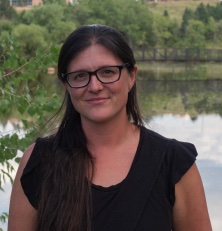
Sponsored by: AIA-Spokane Society

Dr. Samantha Fladd, Washington State University., is an anthropological archaeologist who focuses on the Southwest United States, specifically the Ancestral Pueblos of the Four Corners region.
Architectural spaces create and are created by the social practices of and relationships among the people who occupy and interact within them. Just as spaces become places, people become communities through the accumulation of these actions. Because of this intimate relationship, modifications to spaces make physically manifest negotiations of identities and memories that occur within their walls. In this talk, I examine two ways modifications to space can be seen in the archaeological record of the Pueblo Southwest: architectural alterations and material deposition. Drawing largely on examples from Chaco Canyon and the Homol’ovi Settlement Cluster, I utilize detailed excavation records from the Chaco Research Archive and Homol’ovi Research Program to identify patterns of room modifications. By combining traditional architectural analyses with depositional, the full trajectory of a space, from foundation and occupation through closure, can be analyzed as it relates to constructions of identity and memory. I argue that the accumulation of practices of spatial preparation, modification, and closure speak to the identities of groups in the past and continue to manifest tangible connections with descendent communities today.
Notifications